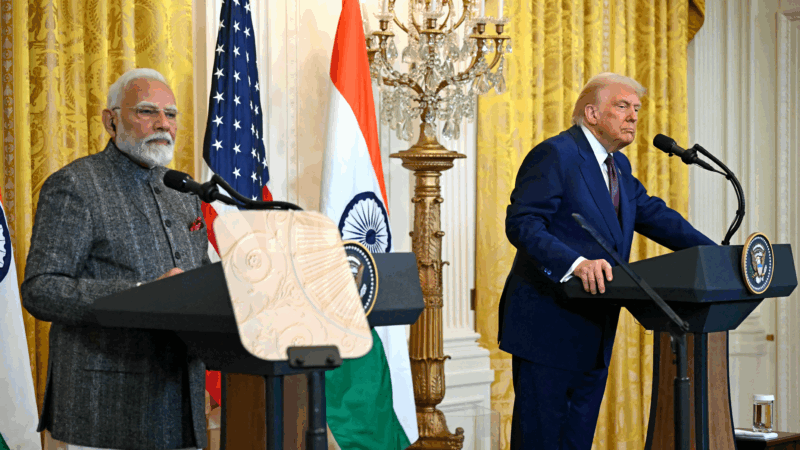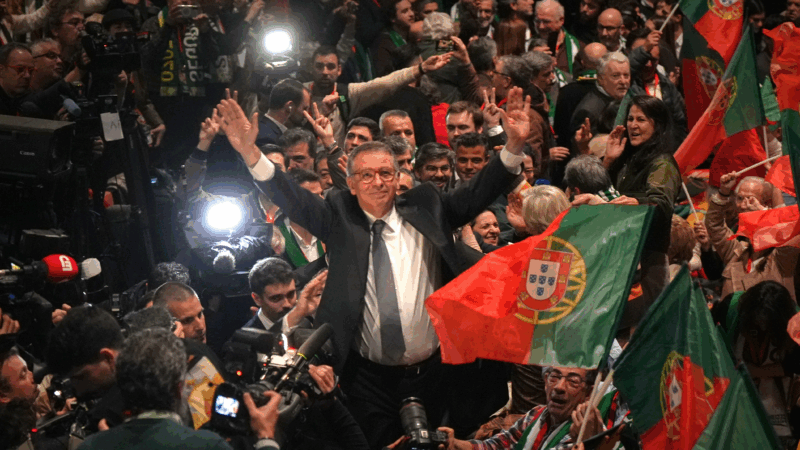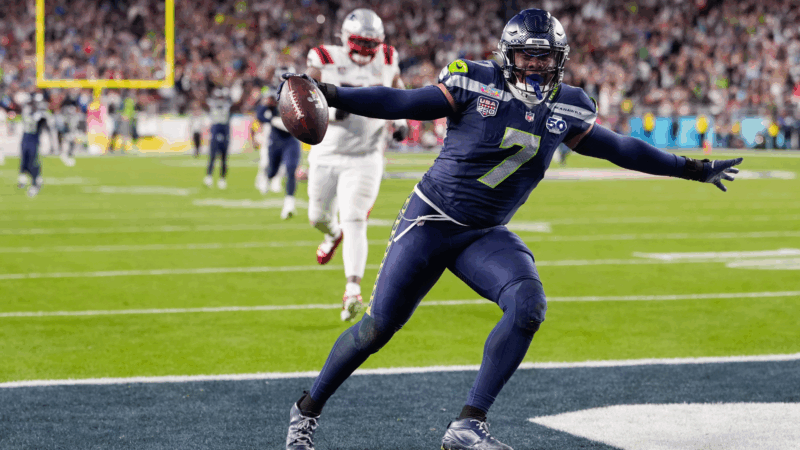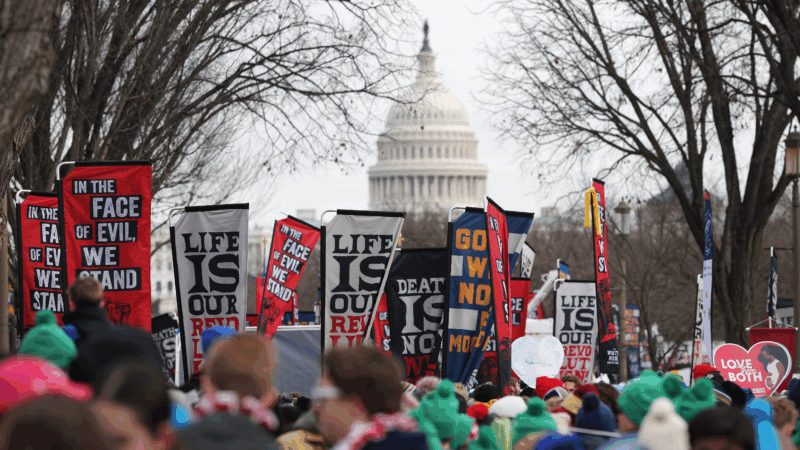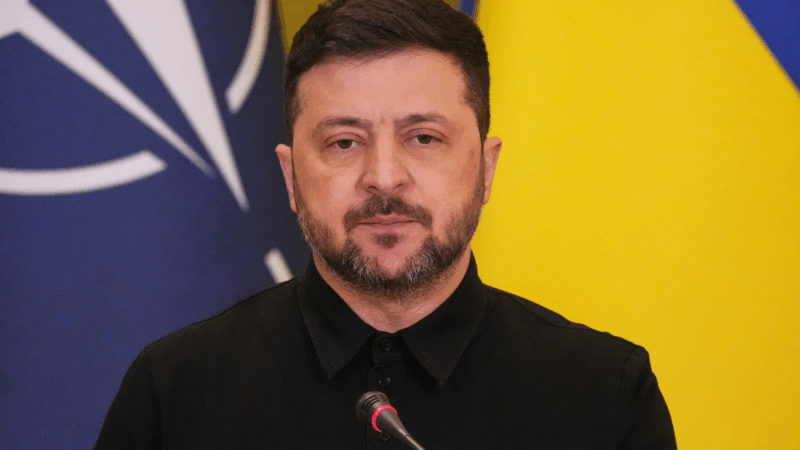Trump dashes hopes of a trade deal with India by Aug. 1, announcing 25% tariffs
President Trump on Wednesday said that the United States will begin imposing 25% tariffs on goods imported from India on Aug. 1.
In a Truth Social post, Trump said that while India is a friend of the U.S., “we have, over the years, done relatively little business with them because their Tariffs are far too high, among the highest in the World, and they have the most strenuous and obnoxious non-monetary Trade Barriers of any Country.”
Trump also said he would impose an additional penalty on India for its trade relationship with Russia, which Trump is trying to pressure to come to a ceasefire with Ukraine. Trump did not elaborate on what that penalty would be or if it would also go into effect on Friday.
Trump’s announcement came after five rounds of trade negotiations have yet to yield a result, dashing hopes that a deal could be concluded by Aug. 1. Indian media reported Tuesday that U.S. officials were expected to visit New Delhi for the sixth round in late August.
The U.S. is India’s top export market. Its top products sold to the U.S. include electronics like iPhones, cheap medicines and precious stones. Last year, U.S. goods trade with India was nearly $130 billion, according to USTR. The U.S. goods trade deficit with India was $45.7 billion in 2024. Trump has blamed India’s high tariffs on imports for the trade deficit.
A tough negotiation
India was among the first countries to begin trade negotiations with the U.S. Since February, its trade minister Piyush Goyal has traveled to Washington, D.C. multiple times. Even amid speculations that India might not make Trump’s deadline, Goyal told Reuters that the two countries were making “fantastic” progress.
Early on, New Delhi showed willingness to lower some of its tariffs. At the February meeting at the White House, India had agreed to buy American oil and fighter jets, and give concessions to products like bourbon whiskey and Harley Davidson motorcycles. In the following months, India did not protest the increased visa restrictions for students and workers, and mutely accepted the deportation of hundreds of Indians in handcuffs.
Indian officials have largely been tight-lipped about the negotiations. But a few weeks ago, local media reported the two sides were unable to iron out differences over tariffs in dairy and agriculture, two sectors where India has high import barriers. In an interview with an Indian business daily, finance minister Nirmala Sitharaman said agriculture and dairy were the two “big red lines,” and that the government wouldn’t do anything that would “weaken our farmers’ positions.”
India has protected the two sectors, saying they provide livelihood to millions of Indian farmers. In 2020, tens of thousands of Indian farmers had protested for more than a year after the Indian government introduced laws reducing government procurement and allowing in the free market. The government was forced to repeal the laws.
A trade deal with the U.S. is “crucial” for India
When Trump was reelected to the White House in 2024, many Indian businesses celebrated the return of the “friend” of Indian Prime Minister Narendra Modi.
Trump’s anti-China stance was expected to benefit Indian jobs and manufacturing. But Trump has made it clear that China’s loss does not mean India’s gain. After Apple CEO Tim Cook announced plans to move most of iPhone production from China to India, Trump claimed to have told him: “I don’t want you building in India.”
When fighting broke out between India and Pakistan in May, Trump boasted that he used the trade deal as leverage to broker a ceasefire within four days. In his first public remarks on such claims, Modi said yesterday that “no world leader” had asked India to stop its strikes on Pakistan. He did not, however, name Trump.
Experts say that India is treading carefully because it is vulnerable, despite being the world’s fifth-largest economy.
“India is a large country but its purchasing power is not very high,” Amit Basole, professor of economics at India’s Azim Premji University. “We need jobs very badly, particularly in manufacturing and more productive sectors. Indian companies need export markets to grow and create these jobs.”
A trade deal with the U.S., says Basole, is thus “critical” for India.
Center-left Socialist candidate wins over populist in Portugal’s presidential runoff
Center-left Socialist candidate António José Seguro recorded a thumping victory over hard-right populist André Ventura in Portugal's runoff presidential election Sunday, according to official results.
Seahawks win Super Bowl title, pounding the Patriots 29-13
Seattle's "Dark Side" defense helped Sam Darnold become the first quarterback in the 2018 draft class to win a Super Bowl, to win the franchise's second title.
No, that wasn’t Liam Conejo Ramos in Bad Bunny’s Super Bowl halftime show
A publicist for Bad Bunny confirmed to NPR that the little boy in a blue bunny hat detained by ICE in Minneapolis last month did not participate in the Super Bowl halftime show.
March for Life attendees may have been exposed to measles, DC Health warns
D.C. health officials are contacting people possibly exposed to measles at the March for Life in January, as confirmed cases rise nationwide.
U.S. gave Ukraine and Russia June deadline to reach peace agreement, Zelenskyy says
"The Americans are proposing the parties end the war by the beginning of this summer," Zelenskyy said, speaking to reporters on Friday.
U.K. leader’s chief of staff quits over hiring of Epstein friend as U.S. ambassador
British Prime Minister Keir Starmer's chief of staff resigned Sunday over the furor surrounding the appointment of Peter Mandelson as U.K. ambassador to the U.S. despite his ties to Jeffrey Epstein.

